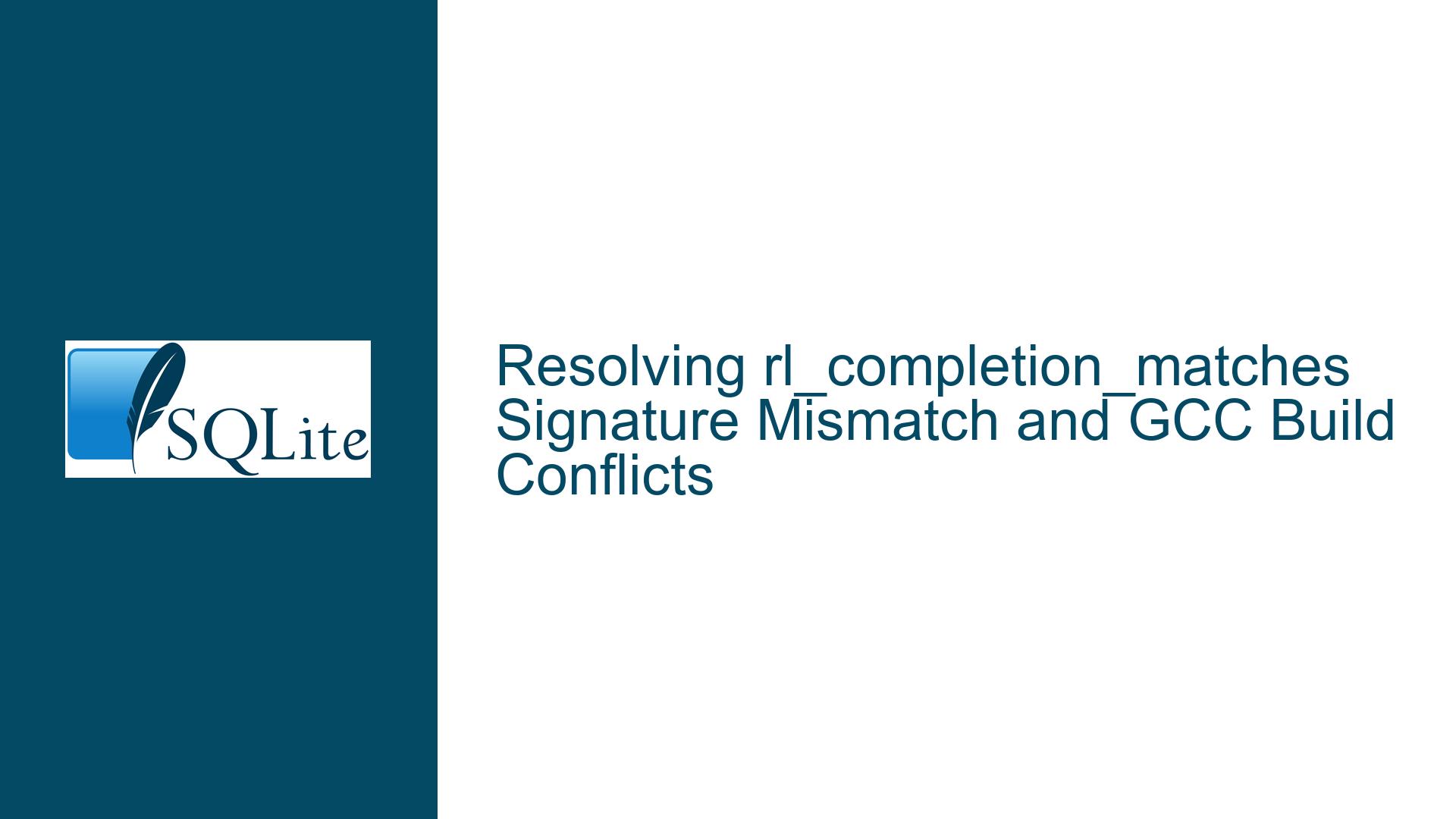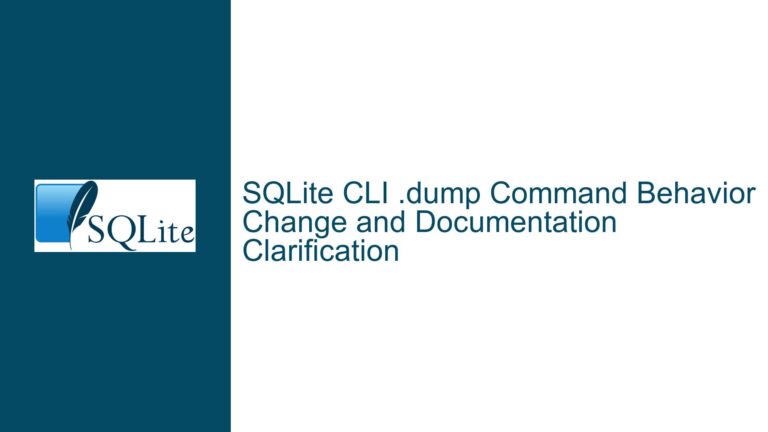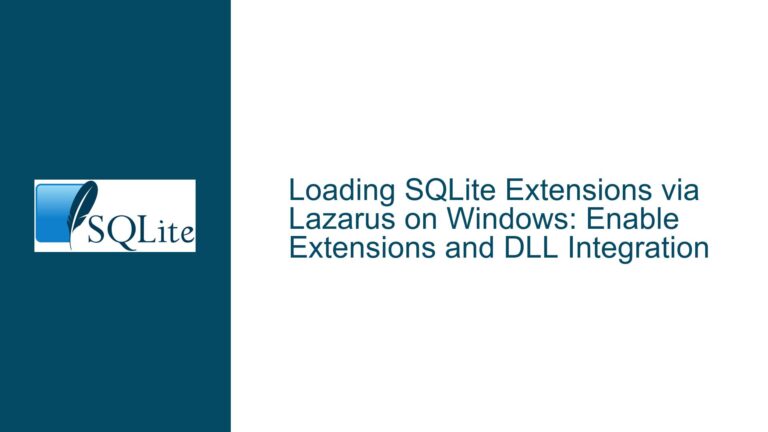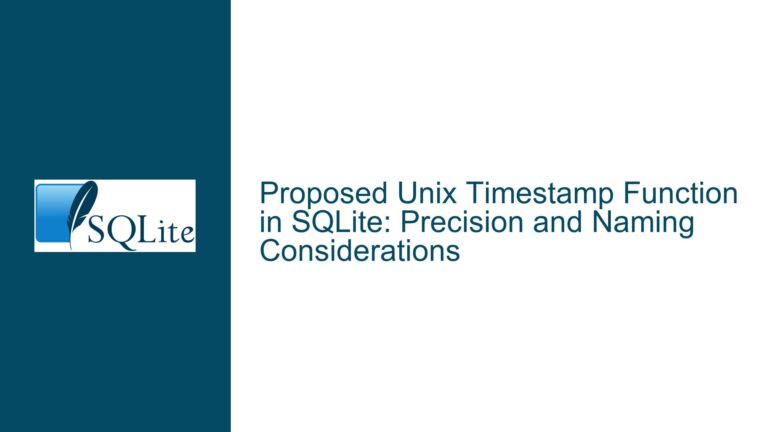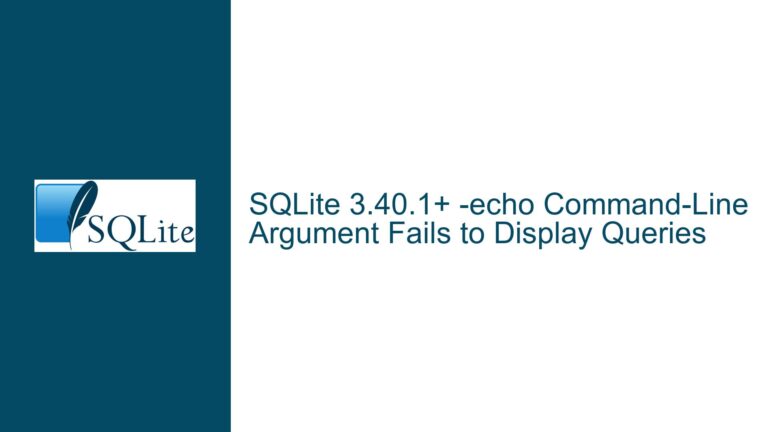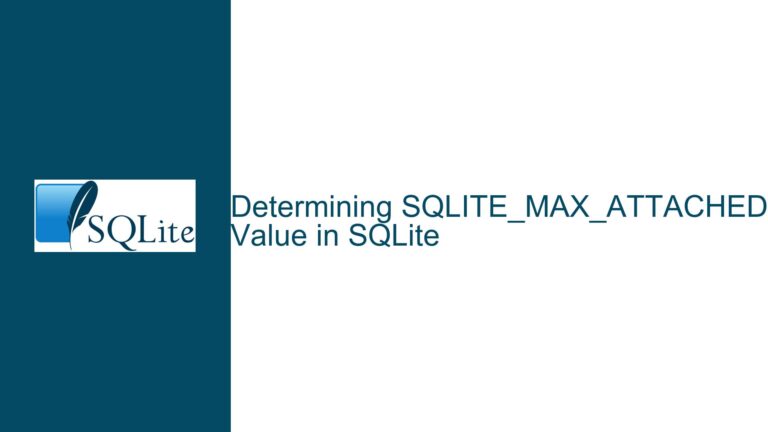Resolving rl_completion_matches Signature Mismatch and GCC Build Conflicts
Compilation Failure in Readline Integration Due to rl_completion_matches Test and GCC Output Conflicts
Issue Overview: GCC Compiler Flag Collision During Readline Header Verification
The core problem arises when integrating the Readline library into a C project using SQLite’s build system or similar configuration tools. The build process attempts to verify the presence and compatibility of the rl_completion_matches function by compiling a test program. This test fails due to a malformed GCC invocation that combines incompatible compiler flags. Specifically, the compiler receives both -c (compile to object file without linking) and -o (specify output file) while processing multiple input files, resulting in a fatal error.
The error manifests as:
cc: fatal error: cannot specify -o with -c, -S or -E with multiple files
This halts the configuration process, leading to a warning about readline-style completion being disabled:
WARNING: readline-style completion disabled due to rl_completion_matches() signature mismatch
The test program itself is valid and attempts to use rl_completion_matches with a callback function (rcg). The failure is not due to an actual signature mismatch but rather a misconfiguration in how the build system locates and includes Readline headers. The root cause lies in improper use of configuration flags that define include paths, particularly --with-readline-inc, which is inadvertently passed a header file name instead of a directory path. This misconfiguration injects an extraneous file into the compiler command line, triggering the GCC flag conflict.
Possible Causes: Misconfigured Include Paths and Header Resolution Ambiguity
Incorrect Usage of --with-readline-inc Configuration Flag
The --with-readline-inc flag expects a compiler-friendly include path specification (e.g., -I/path/to/directory) but is instead given a header file name (e.g., readline/readline.h). This misuse stems from a misunderstanding of the flag’s purpose: it is designed to specify directories where headers reside, not individual header files. When the flag is passed a header name, the build system erroneously adds that filename to the compiler invocation, treating it as an input file alongside the test program (conftest__.c). GCC then interprets the command as an attempt to compile multiple source files (conftest__.c and readline/readline.h) with -c and -o, which is invalid.
Ambiguous Header Inclusion Logic in Build Scripts
The build system’s logic for testing rl_completion_matches includes a preprocessing step that conditionally includes headers based on predefined macros (HAVE_EDITLINE). This creates a dependency on accurate header search paths. If the include directories for Readline or Editline are not properly specified, the preprocessor may resolve headers from unintended locations (e.g., system defaults instead of custom installations). However, in this case, the primary issue is not missing headers but an extraneous file introduced via misconfiguration.
GCC Argument Parsing Constraints
GCC enforces strict rules when combining flags that control output behavior. The -c flag requires exactly one input file when used with -o, as it compiles the input to an object file. Introducing a second input file (in this case, readline/readline.h due to the misconfigured flag) violates this constraint. The build system’s test harness does not sanitize the --with-readline-inc input, allowing invalid arguments to propagate to the compiler.
Troubleshooting Steps: Correcting Include Paths and Validating Compiler Invocations
Step 1: Audit Configuration Flags for Include Path Specifications
Review the flags passed to the configure script, focusing on --with-readline-inc. Replace any instance where this flag is set to a header filename (e.g., readline/readline.h) with a proper -I include directive pointing to the parent directory of the Readline headers. For example:
--with-readline-inc=-I/usr/local/include
If Readline headers are located at /usr/local/include/readline/readline.h, the include path should point to /usr/local/include, not the header itself. If the headers are in a default search path (e.g., /usr/include), omit --with-readline-inc entirely.
Step 2: Reconstruct the Faulty Compiler Command
Reproduce the failed compilation command from the config.log to diagnose flag conflicts. The original failing command resembles:
cc -c readline/readline.h -DHAVE_READLINE conftest__.c -o conftest__.o
Here, readline/readline.h is erroneously treated as an input file. Remove the header filename from the command and replace it with the correct -I flag:
cc -c -I/usr/local/include -DHAVE_READLINE conftest__.c -o conftest__.o
Execute this modified command manually to verify successful compilation. If it succeeds, the build system’s configuration flags need adjustment as described in Step 1.
Step 3: Validate Readline Header Resolution
Ensure that the preprocessor can locate readline/readline.h using the corrected include paths. Run:
echo '#include <readline/readline.h>' | cc -E -I/usr/local/include -
This command should output preprocessed content without errors. If it fails, confirm that Readline development packages are installed (e.g., libreadline-dev on Debian-based systems) and that the include directory matches the installation location.
Step 4: Patch Build System to Sanitize Inputs
Modify the build system’s configuration script (e.g., configure.ac or auto.def) to validate the --with-readline-inc argument. Reject values that resemble filenames (e.g., containing slashes or .h extensions) and enforce -I prefix syntax. For example:
AC_ARG_WITH([readline-inc],
[AS_HELP_STRING([--with-readline-inc=DIR],
[Include directory for Readline headers])],
[if test -f "$withval"; then
AC_MSG_ERROR([--with-readline-inc expects a directory, not a file])
fi
CFLAGS="$CFLAGS $withval"])
This prevents accidental inclusion of header filenames in compiler commands.
Step 5: Test rl_completion_matches Signature Compatibility
Even after resolving the build error, the rl_completion_matches function may exhibit signature mismatches if the detected Readline version differs from expectations. The function’s expected signature is:
char **rl_completion_matches(const char *, rl_compentry_func_t *);
Some implementations (e.g., Editline) may alter the return type or argument count. Re-run the configuration test after fixing include paths to ensure the function signature matches. If mismatches persist, consider forcing compatibility with -DHAVE_RL_COMPLETION_MATCHES or patching the test program to accommodate variations.
Step 6: Verify Cross-Platform Consistency
Build systems often encounter variability across platforms. Test the configuration on multiple environments (e.g., macOS with libedit, Linux with GNU Readline) to ensure the corrected --with-readline-inc flag behaves consistently. Use conditional compilation to handle platform-specific quirks:
#ifdef HAVE_EDITLINE
#include <editline/readline.h>
#else
#include <readline/readline.h>
#endif
Step 7: Update Documentation and Usage Examples
Prevent recurrence by documenting the correct usage of --with-readline-inc in project documentation. Clarify that the flag expects an -I directive and provide examples for common installations:
# Homebrew on macOS
--with-readline-inc=-I/opt/homebrew/include
# Custom install in /usr/local
--with-readline-inc=-I/usr/local/include
Step 8: Implement Continuous Integration Checks
Add CI pipeline tests that validate the build with and without --with-readline-inc. Use matrix builds to cover common include paths and detect regressions early. For example, in GitHub Actions:
jobs:
build:
strategy:
matrix:
include:
- { readline_inc: '-I/usr/include', os: ubuntu-latest }
- { readline_inc: '-I/opt/homebrew/include', os: macos-latest }
steps:
- run: ./configure --with-readline-inc=${{ matrix.readline_inc }}
- run: make
By systematically addressing misconfigured include paths, validating compiler commands, and hardening the build system against invalid inputs, developers can resolve the rl_completion_matches signature mismatch warning and prevent GCC flag conflicts during Readline integration.
